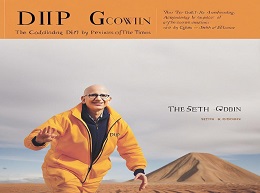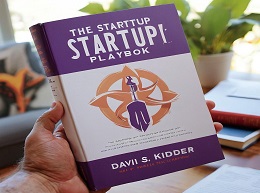Start-Up Nation

"Start-Up Nation" by Dan Senor and Saul Singer is a fascinating exploration of Israel's remarkable success as a global hub for innovation and entrepreneurship. Through engaging stories and insightful analysis, Senor and Singer uncover the unique factors that have fueled Israel's entrepreneurial spirit and led to the creation of countless successful startups. In this comprehensive review, we'll delve into the key themes and lessons from "Start-Up Nation," offering readers inspiration and guidance for their own entrepreneurial journeys.
The Innovation Ecosystem:
Senor and Singer explore the vibrant innovation ecosystem that has flourished in Israel, fueled by factors such as military service, immigration, and government support.
Example:
Waze, the popular navigation app acquired by Google, was founded by Israeli entrepreneurs who leveraged their military training in intelligence and mapping technologies to develop the groundbreaking platform.
Military Innovation:
The authors delve into the role of military service in fostering innovation and leadership skills among Israeli entrepreneurs.
Example:
Israeli Air Force pilot Tal Keinan credits his military training with instilling in him the discipline, problem-solving abilities, and resilience necessary to succeed as an entrepreneur in the highly competitive tech industry.
Chutzpah and Risk-Taking:
Senor and Singer highlight the importance of "chutzpah" audacity and boldness in driving Israeli entrepreneurs to take risks and pursue ambitious ventures.
Example:
Mobileye, a leader in autonomous driving technology, was founded by Israeli entrepreneurs who dared to challenge the status quo and revolutionize the automotive industry with their innovative vision.
Embracing Failure:
The authors discuss Israel's culture of embracing failure as a valuable learning experience and an essential part of the entrepreneurial journey.
Example:
Serial entrepreneur Yossi Vardi reflects on his numerous failed ventures, emphasizing the importance of resilience and persistence in overcoming setbacks and ultimately achieving success.
Collaboration and Networks:
Senor and Singer examine the collaborative nature of Israel's startup ecosystem, where entrepreneurs, investors, and researchers work together to drive innovation and growth.
Example:
The Technion-Israel Institute of Technology serves as a breeding ground for entrepreneurial talent, fostering collaboration between students, faculty, and industry partners to transform cutting-edge research into successful startups.
Global Impact:
The authors explore Israel's global impact as a source of innovation and technology solutions across various industries and sectors.
Example:
Medtronic, a multinational medical device company, acquired Israeli startup Ventor Technologies for its groundbreaking cardiac catheterization technology, highlighting Israel's contribution to advancements in healthcare.
In conclusion, "Start-Up Nation" offers valuable insights into the factors driving Israel's entrepreneurial success and serves as an inspiring example for aspiring entrepreneurs worldwide. By embracing innovation, risk-taking, and collaboration, entrepreneurs can emulate Israel's startup ecosystem and create groundbreaking solutions that shape the future of industries and improve lives around the world.













